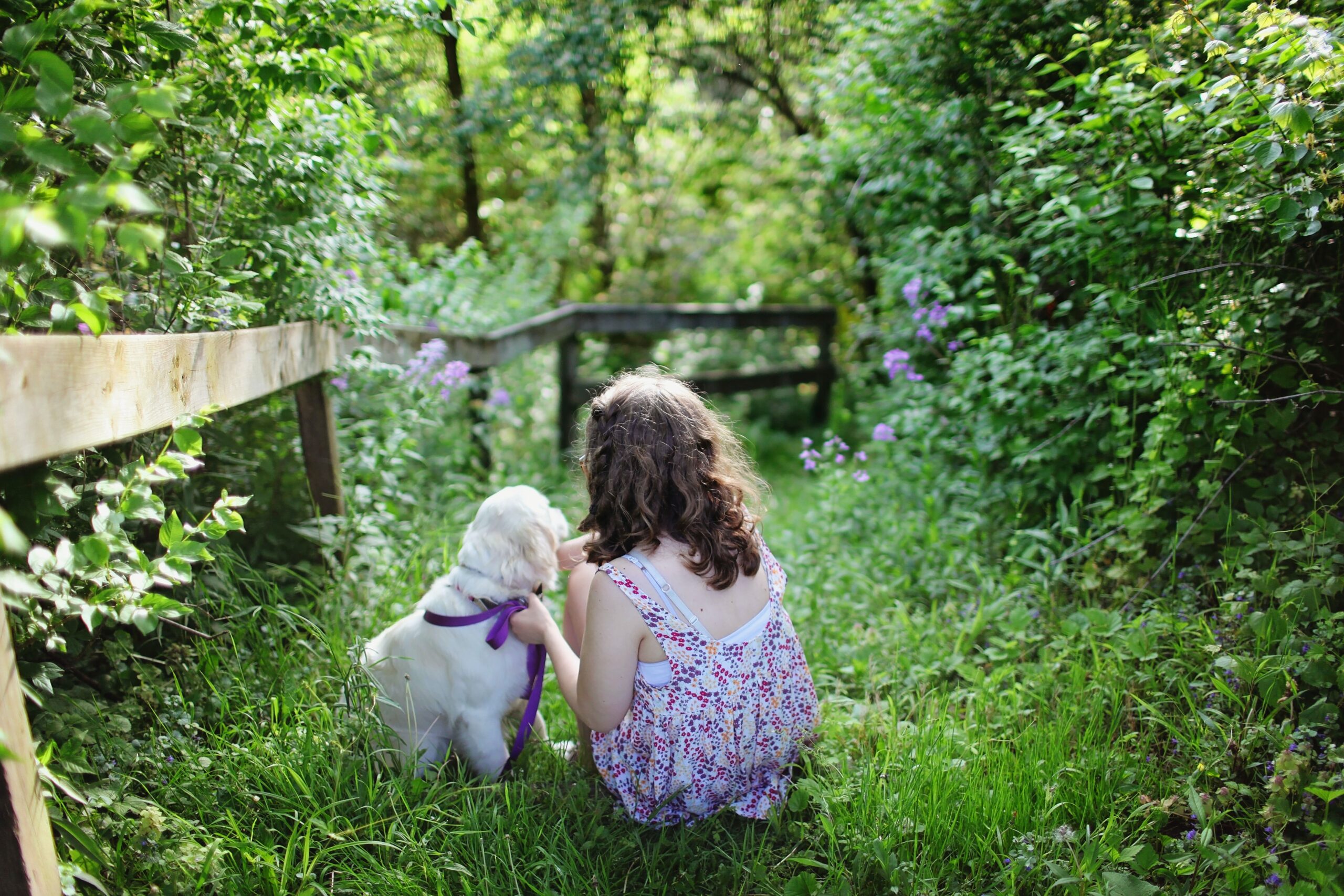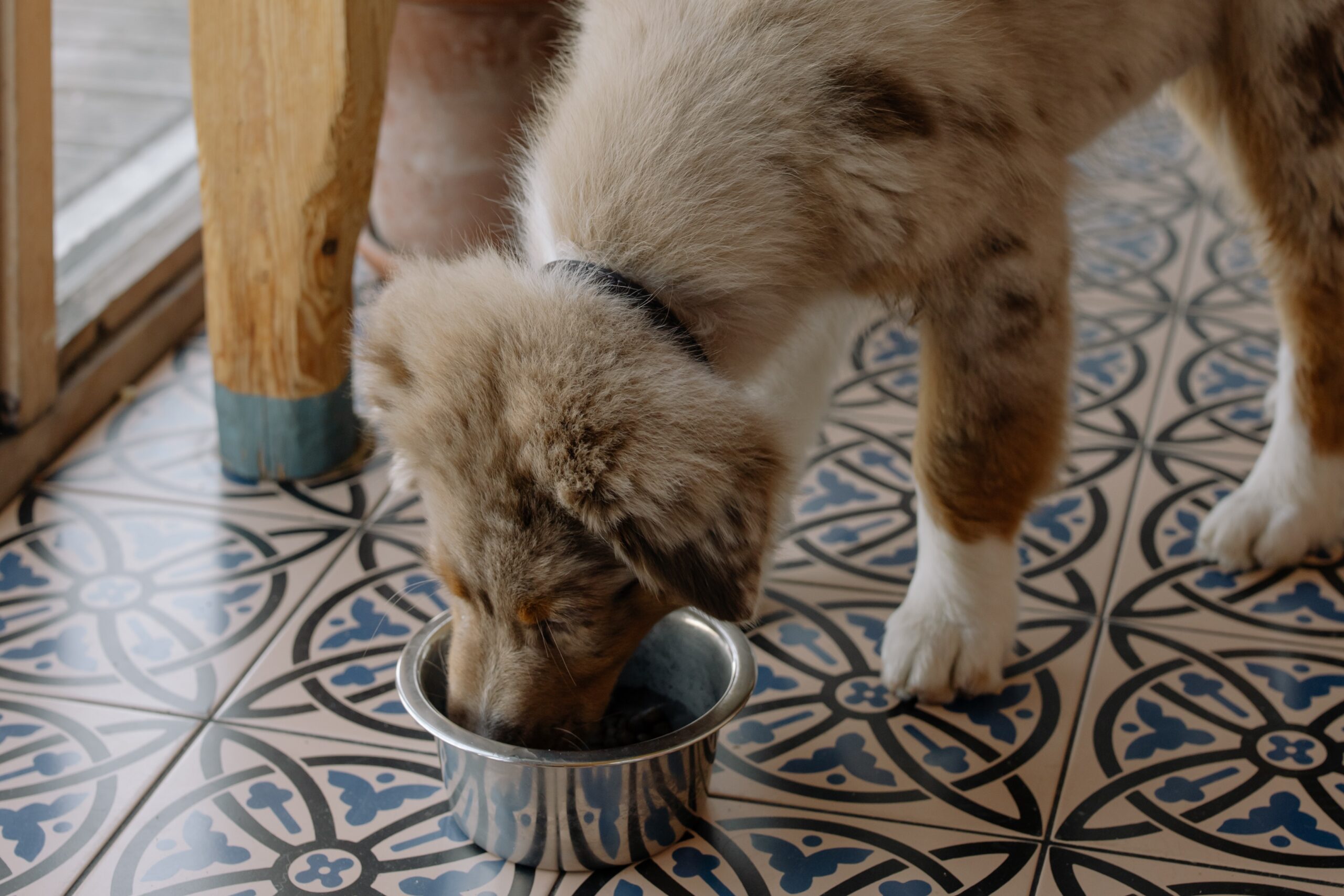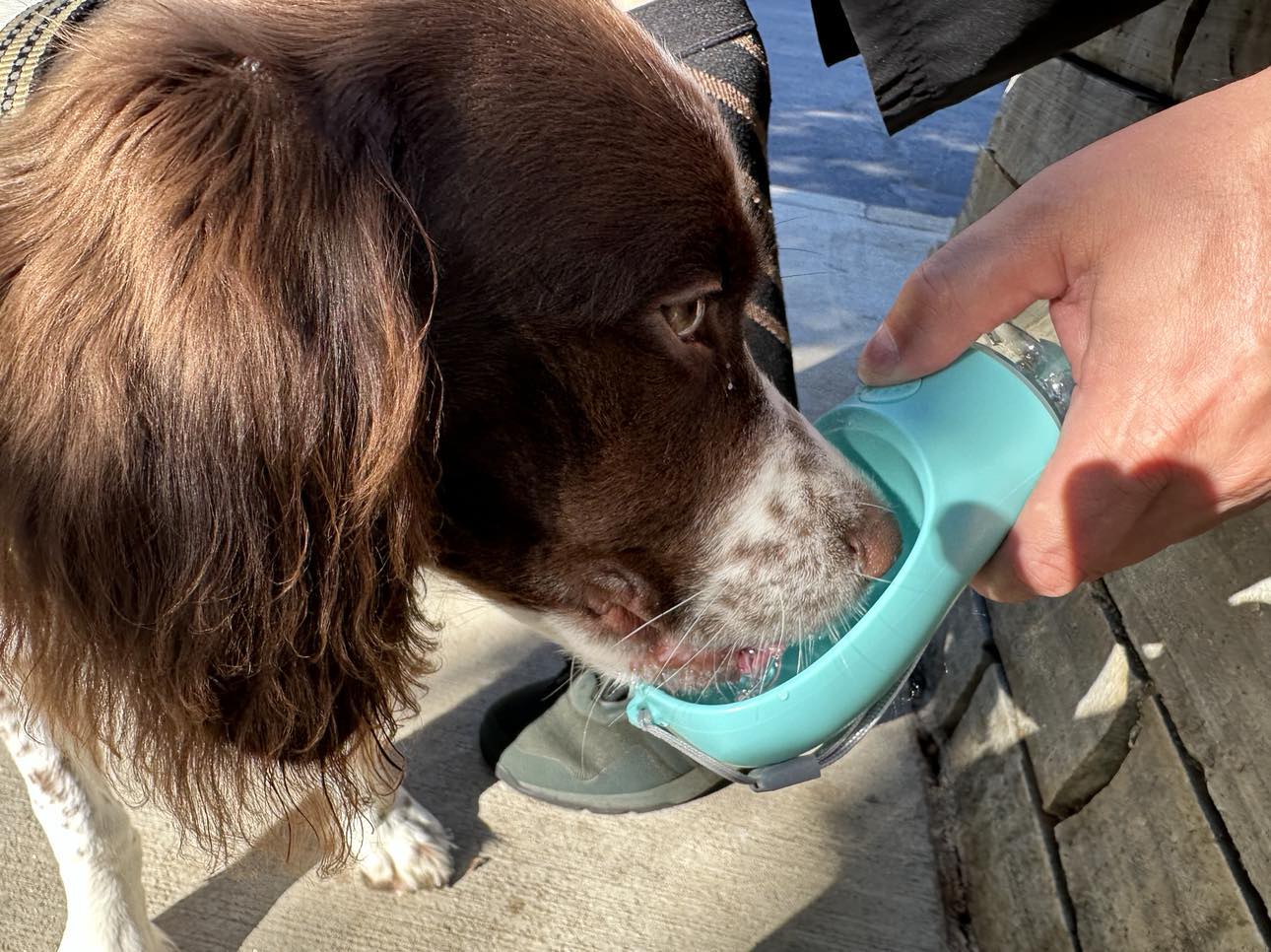Definition of Puppy Blues Welcoming a new puppy into your home is undoubtedly an exhilarating experience. Their adorable faces, playful antics, and boundless energy can melt even the coldest of hearts. However, amid the excitement, many new puppy owners may find themselves unexpectedly grappling with a wave of emotions known as “puppy blues.”
Puppy blues refer to the overwhelming feelings of sadness, anxiety, and even regret that some individuals experience after bringing a new puppy into their lives. These emotions might seem counterintuitive, especially when one anticipates unbridled happiness and companionship with their furry friend. Yet, it is vital to understand that the puppy blues are a relatively common phenomenon and not something to be ashamed of or dismissed lightly.
The Excitement and Challenges of Getting a New Puppy The decision to bring a puppy home is often filled with excitement and joy. The prospect of creating lasting memories, forming an unbreakable bond, and having a loyal companion by your side is truly heartwarming. Additionally, the anticipation of embarking on various adventures together can make the experience even more enticing.
However, alongside the excitement, there lie a myriad of challenges that come with puppy parenthood. Puppies require constant attention, training, socialization, and patience. Their boundless energy can be both endearing and exhausting, especially for first-time dog owners who might not be fully prepared for the responsibilities that accompany raising a young pup. The sudden disruption of daily routines, sleepless nights, and the adjustment period can leave many feeling overwhelmed.
Importance of Discussing Puppy Blues to Raise Awareness and Provide Support It is of utmost importance to bring discussions about puppy blues into the open. Many new puppy owners might feel a sense of guilt or shame for experiencing these emotions, as they may believe that having such feelings means they are unfit to be dog parents. By shedding light on the puppy blues, we can foster an environment of understanding and empathy.
Moreover, acknowledging and addressing the puppy blues can help new owners better navigate through this challenging phase. Raising awareness about the emotional rollercoaster that comes with puppy ownership allows individuals to seek support from others who have experienced similar feelings or to reach out to professionals for guidance.
In this article, we will delve deeper into the concept of puppy blues, examining the causes and symptoms of these emotions. We will also explore strategies to cope with the challenges, build a strong bond with your puppy, and emphasize the rewarding journey that awaits on the other side of the puppy blues. Remember, you are not alone in this experience, and with the right support and understanding, you can emerge as a confident and loving puppy parent.
What are Puppy Blues?
Definition and Symptoms Puppy blues encompass a range of intense emotions that can arise shortly after bringing a new puppy into your home. While each individual’s experience may vary, common symptoms include:
- Overwhelming Anxiety: Feeling anxious and unsure about handling the responsibilities of puppy care, training, and ensuring their well-being.
- Regret and Doubt: Questioning the decision to get a puppy and wondering if you are capable of providing the love and care they need.
- Sadness and Frustration: Experiencing moments of sadness or frustration when the puppy doesn’t meet your expectations or when training difficulties arise.
- Isolation: Feeling isolated and cut off from social activities or previous routines due to the constant demands of puppy care.
- Sleep Deprivation: Adjusting to disrupted sleep patterns, especially during the initial stages when the puppy needs nighttime attention.
- Loss of Freedom: Sensing a loss of personal freedom and spontaneous activities due to the puppy’s constant need for supervision and care.
- Unrealistic Expectations: Unrealistic expectations of a “perfect” puppy can lead to disappointment when the reality of puppy care sets in.
- Drastic Lifestyle Changes: The sudden disruption of daily routines, including sleep schedules and free time, can be difficult to adjust to.
- Lack of Personal Time: The high demands of puppy care might leave you with little time for yourself and other commitments.
- Training Challenges: Difficulties in training and housebreaking can add to feelings of inadequacy and frustration.
- Responsibility Overload: Taking full responsibility for the well-being of a living being can be daunting, especially for first-time dog owners.
Differentiating Puppy Blues from Regular Puppy Challenges It is essential to differentiate puppy blues from the typical challenges that accompany puppy ownership. While puppy blues encompass a whirlwind of emotions, they are temporary and tend to subside as you and your puppy adjust to each other. Regular puppy challenges, on the other hand, are part of responsible pet ownership and require patience, training, and commitment to overcome.
Understanding the distinction between the two can help you cope better with the emotional aspect of puppy blues while addressing the practical aspects of raising a happy and well-behaved puppy. Remember that puppy blues do not diminish your ability to be a loving and responsible dog parent; they are simply a natural response to a significant life change.
In the following sections of this article, we will explore strategies to cope with puppy blues, establish a positive bond with your puppy, and create a nurturing environment for both you and your four-legged companion. Remember, patience, understanding, and seeking support can make all the difference in transforming the puppy blues into a joyous and fulfilling journey of puppy parenthood.
The Emotional Rollercoaster
Overwhelming Responsibility and Adjustment Period One of the primary reasons behind the puppy blues is the sudden surge of overwhelming responsibility that comes with puppy ownership. A new puppy demands constant attention, care, and supervision, much like a human infant. The adjustment period can be intense, especially if you weren’t fully prepared for the level of commitment required.
During this phase, you may find yourself feeling exhausted and drained as you strive to meet the puppy’s needs while trying to maintain some semblance of normalcy in your daily life. The feeling of being “on call” 24/7 can be emotionally taxing, leading to heightened stress levels and a rollercoaster of emotions.
Feelings of Inadequacy and Self-Doubt Puppy blues can also trigger feelings of inadequacy and self-doubt. As you encounter challenges in training or face difficulties in understanding your puppy’s needs, you might begin to question your capabilities as a dog owner. It’s not uncommon to compare yourself to others who seem to effortlessly handle puppy care, further deepening the sense of inadequacy.
Moreover, the fear of making mistakes in the training process or not being able to provide the best possible care can intensify these emotions. However, it’s important to recognize that every puppy and every owner is unique, and it’s normal to face a learning curve in puppy parenthood.
Impact on Mental Health and Well-being The emotional toll of puppy blues can significantly impact your mental health and overall well-being. Feelings of sadness, anxiety, and stress can lead to a decline in mood and energy levels, affecting your ability to cope with other aspects of life. Sleep disturbances caused by the puppy’s needs can disrupt your sleep patterns, leading to fatigue and irritability.
If left unaddressed, puppy blues can contribute to more severe mental health issues, such as depression or anxiety disorders. Therefore, it is crucial to pay attention to your emotional state during this phase and seek support if needed.
It’s important to remember that experiencing puppy blues doesn’t mean you love your puppy any less. The intensity of emotions during this period is a testament to the deep bond you are forming with your new furry friend. Acknowledging these emotions and seeking help when necessary is an essential step towards navigating the emotional rollercoaster of puppy parenthood successfully.
In the next section, we will explore ways to recognize the signs of puppy blues and differentiate them from normal puppy challenges. Additionally, we’ll discuss coping strategies to overcome these emotions, fostering a positive and fulfilling relationship with your canine companion. Remember, with time, patience, and self-compassion, the puppy blues can transform into the joy of sharing a loving and meaningful connection with your puppy.
Recognizing the Signs
Identifying Early Signs of Puppy Blues Recognizing the early signs of puppy blues is essential for addressing and managing these emotions effectively. Some common indicators include:
- Persistent Feelings of Sadness: Feeling consistently down, tearful, or emotionally overwhelmed without a clear cause.
- Anxiety and Worry: Constantly worrying about your puppy’s well-being, training progress, and your ability to meet their needs.
- Irritability and Frustration: Becoming easily irritated or frustrated by the puppy’s behaviors or training challenges.
- Fatigue and Sleep Disturbances: Experiencing excessive tiredness due to disrupted sleep patterns caused by the puppy’s needs.
- Loss of Interest: Losing interest in activities or hobbies that previously brought joy and fulfillment.
- Social Withdrawal: Withdrawing from social interactions and isolating yourself due to the demands of puppy care.
Don’t hesitate to share your feelings with friends, family, or fellow puppy owners who can empathize with your situation. Speaking openly about your emotions can provide relief and support as you realize that others have experienced similar feelings. Additionally, consider seeking advice from experienced dog owners or joining online communities where you can discuss your challenges and triumphs with like-minded individuals.
Dispelling the Myth of the “Perfect Puppy Parent” It’s essential to dispel the myth of the “perfect puppy parent” that often perpetuates unrealistic expectations and contributes to the puppy blues. No one is a flawless pet owner from the start, and every dog-human relationship requires time, effort, and patience to flourish.
Understand that every puppy has its unique personality and temperament, which might not align with preconceived notions of a “perfect” pet. Embrace the imperfections and view challenges as opportunities for growth and learning. Puppy parenthood is a journey of discovery, filled with ups and downs, but the rewards of a strong bond with your furry companion are well worth the effort.
Avoid comparing your progress to others and remember that each puppy-owner relationship is different. Focus on the positive steps you and your puppy are taking together, no matter how small they may seem. Celebrate achievements, however minor, and be kind to yourself during this adjustment period.
In the following section, we will explore coping strategies to manage puppy blues effectively. By recognizing the signs, acknowledging your emotions, and embracing the reality of puppy ownership, you can foster a healthier and happier relationship with your new canine family member. Remember, seeking support and practicing self-compassion are essential steps towards transforming puppy parenthood into a fulfilling and rewarding experience.
Understanding the Reasons
Unrealistic Expectations vs. Reality One significant factor contributing to puppy blues is the contrast between unrealistic expectations and the reality of owning a puppy. Often, people envision their new puppy as a perfectly behaved, obedient, and affectionate companion right from the start. However, the truth is that puppies are like blank slates, requiring consistent training, patience, and time to develop into well-mannered dogs.
It’s essential to approach puppy ownership with realistic expectations and understand that it is a journey of growth and learning for both you and your furry friend. Recognize that puppies will make mistakes and have their unique personalities and quirks. By acknowledging and embracing these differences, you can build a stronger, more understanding bond with your puppy.
Impact of Disrupted Routines and Sleep Deprivation Bringing a new puppy home often disrupts established routines, which can be particularly challenging for those with busy schedules or demanding jobs. Puppies require constant supervision, regular feeding times, frequent bathroom breaks, and consistent training, all of which can feel overwhelming at first.
The sleep deprivation caused by attending to the puppy’s needs during the night can further exacerbate feelings of fatigue and emotional strain. However, as your puppy grows and learns, their routines will become more predictable, and you will gradually adapt to the new normal.
Bonding Process and Time Required Forming a strong bond with your puppy is a beautiful and rewarding process, but it requires time and patience. Some individuals might expect an instant connection with their new furry companion, only to feel disheartened if it doesn’t happen immediately.
Just like any relationship, bonding with your puppy takes time and effort. Every interaction, training session, and shared experience contributes to the strengthening of your bond. Be consistent in your care, positive reinforcement, and affection, and in time, you will witness a deep and meaningful connection develop between you and your pup.
Understanding that bonding is a gradual process helps manage expectations and allows you to appreciate the unique journey you are undertaking with your puppy. Remember that your love and dedication to your new companion will forge a lasting and unbreakable bond over time.
In the next section, we will delve into coping strategies to help overcome the challenges of puppy blues and foster a nurturing environment for both you and your furry companion. By understanding the reasons behind the puppy blues, setting realistic expectations, and embracing the bonding process, you can lay the foundation for a loving and fulfilling relationship with your puppy.
Coping Strategies
Patience and Self-Compassion Patience is an invaluable virtue when dealing with puppy blues. Remember that adjusting to a new life with a puppy takes time, and it’s okay to feel overwhelmed at times. Instead of being overly critical of yourself, practice self-compassion. Acknowledge that it’s normal to experience ups and downs during this phase, and remind yourself that you are doing the best you can. Be kind to yourself, just as you would be kind to a friend facing a similar situation.
Setting Achievable Goals and Celebrating Small Wins Breaking down your puppy’s training and care into manageable, achievable goals can help alleviate feelings of being overwhelmed. Focus on one step at a time and celebrate small victories along the way. Each time your puppy learns a new command or exhibits positive behavior, celebrate it as a success. These small wins will boost your confidence and reinforce the bond between you and your furry companion.
Establishing a Routine for Both the Puppy and the Owner Creating a routine is crucial for providing your puppy with a sense of stability and structure, which can help minimize behavioral issues and reduce your own stress. Set regular feeding times, designated play sessions, and consistent training sessions. Additionally, establish a schedule for walks and bathroom breaks to avoid accidents and facilitate housebreaking.
Having a routine not only benefits the puppy but also helps you manage your time more efficiently, allowing you to incorporate personal activities and moments of relaxation. As you and your puppy settle into a daily rhythm, the puppy blues are likely to lessen, replaced by a feeling of familiarity and comfort.
Enlisting Support from Family, Friends, or a Puppy Support Group Don’t hesitate to seek support from those around you or join a puppy support group. Talking to family and friends about your experiences can provide emotional relief and valuable advice. Those who have gone through similar situations can offer helpful tips and encouragement, assuring you that you are not alone in your journey.
Joining a puppy support group, either in person or online, allows you to connect with fellow dog owners who understand the challenges you’re facing. You can exchange stories, share tips, and offer support to one another. Knowing that others have overcome puppy blues and emerged as confident and loving puppy parents can be motivating and inspiring.
In conclusion, coping with puppy blues requires patience, self-compassion, and a willingness to embrace the learning process. By setting realistic expectations, establishing a routine, and seeking support from loved ones or a puppy support group, you can navigate through the emotional rollercoaster of puppy parenthood with greater ease. Remember, with time and dedication, the puppy blues will gradually subside, making way for a fulfilling and cherished relationship with your furry companion.
Training and Socialization
The Role of Proper Training in Reducing Stress and Anxiety Effective training plays a pivotal role in mitigating stress and anxiety for both you and your puppy. Training provides clear boundaries and expectations, allowing your puppy to understand what is expected of them. A well-trained puppy is more likely to exhibit positive behaviors, making the entire experience of puppy ownership more enjoyable and less overwhelming.
Positive reinforcement training, which involves rewarding desired behaviors, is particularly effective in fostering a strong bond and reducing stress. This approach encourages your puppy to associate good behavior with positive outcomes, creating a harmonious and trusting relationship between you and your furry companion.
Remember that training is not just about teaching commands; it’s also about building communication and understanding between you and your puppy. Be patient, consistent, and use positive reinforcement to encourage your puppy to learn and grow.
As you guide your puppy through socialization experiences, stay attuned to their reactions and comfort levels. Create positive associations by offering treats, praise, and affection when your puppy responds well to new encounters. This approach not only fosters social skills but also strengthens the bond between you and your puppy as they learn to rely on you for guidance and support.
Additionally, engaging in playtime and interactive activities can further enhance the bond with your puppy. Play serves as a means of communication, allowing you and your puppy to understand each other’s cues and expressions better.
Seeking Professional Help When Needed While many aspects of puppy care can be managed through self-education and support from peers, some situations may require professional guidance. If you find yourself struggling with training challenges, behavioral issues, or overwhelming feelings of puppy blues, don’t hesitate to seek help from a qualified dog trainer or a veterinarian specializing in behavior.
Professional trainers can offer personalized guidance, tailored to your puppy’s specific needs and personality. They can also provide you with tools and techniques to address behavioral concerns effectively.
Additionally, seeking professional assistance early on can prevent small issues from escalating into more significant problems later. Remember, asking for help is a sign of responsibility and dedication to providing the best care for your puppy.
In the next section, we will conclude our exploration of puppy blues and how to overcome them. By understanding the significance of proper training, the value of socialization, and knowing when to seek professional support, you are well-equipped to navigate the challenges of puppy parenthood with confidence and compassion. With these strategies in mind, you can create a positive and loving environment for your puppy to thrive, fostering a lasting and joyful relationship for years to come.
The Journey to Bonding
Celebrating the Milestones in the Puppy-Owner Relationship As you and your puppy progress through the early stages of puppyhood, it’s essential to celebrate the milestones in your relationship. Each achievement, no matter how small, is a testament to the progress you’ve made as a puppy parent and the growth your puppy has experienced.
Whether it’s the first time your puppy responds to a command, the moment they look to you for reassurance, or the first time they seek comfort in your presence, take a moment to cherish these precious milestones. Recognize and appreciate the bond that is steadily forming between you and your puppy. These moments are the building blocks of a strong and loving relationship that will continue to deepen over time.
Building Trust and Strengthening the Bond Trust is the foundation of any healthy and positive relationship, and it is no different when it comes to your bond with your puppy. Building trust requires consistency, patience, and understanding.
Be reliable in meeting your puppy’s needs, whether it’s feeding them on time, taking them out for walks, or providing comfort during stressful situations. Consistency in training and rewarding positive behaviors reinforces trust as your puppy learns to rely on you for guidance and support.
Communication is also crucial in building trust. Pay attention to your puppy’s body language and vocal cues, as these are their primary ways of expressing themselves. Understanding and responding appropriately to their needs and emotions helps strengthen the mutual trust and understanding between you and your furry companion.
Embracing the Joys of Puppy Parenthood While the puppy blues may have been a challenging phase, it’s important to embrace the joys of puppy parenthood. Puppies have a unique way of bringing joy, laughter, and happiness into our lives. Their boundless energy and unconditional love can lift your spirits and brighten your days.
As your bond with your puppy deepens, you’ll experience moments of pure joy and companionship that make all the efforts and sacrifices worthwhile. From playtime antics to heartwarming cuddles, the love you share with your puppy is unlike any other.
Remember to be present in these moments and savor the journey of watching your puppy grow and mature. Cherish the little things and find joy in the simple pleasures of being a puppy parent.
In conclusion, the journey to bonding with your puppy is filled with milestones, trust-building, and immeasurable joy. By celebrating the progress you make together, nurturing trust and communication, and embracing the delights of puppy parenthood, you are fostering a deep and lasting bond with your furry companion. As you continue on this beautiful journey, remember that your love and care are the most precious gifts you can offer your puppy, and in return, they will become a cherished and devoted member of your family for years to come.
Celebrating the Milestones in the Puppy-Owner Relationship As you and your puppy progress through the early stages of puppyhood, it’s essential to celebrate the milestones in your relationship. Each achievement, no matter how small, is a testament to the progress you’ve made as a puppy parent and the growth your puppy has experienced.
The Journey to Bonding
Whether it’s the first time your puppy responds to a command, the moment they look to you for reassurance, or the first time they seek comfort in your presence, take a moment to cherish these precious milestones. Recognize and appreciate the bond that is steadily forming between you and your puppy. These moments are the building blocks of a strong and loving relationship that will continue to deepen over time.
Building Trust and Strengthening the Bond Trust is the foundation of any healthy and positive relationship, and it is no different when it comes to your bond with your puppy. Building trust requires consistency, patience, and understanding.
Be reliable in meeting your puppy’s needs, whether it’s feeding them on time, taking them out for walks, or providing comfort during stressful situations. Consistency in training and rewarding positive behaviors reinforces trust as your puppy learns to rely on you for guidance and support.
Communication is also crucial in building trust. Pay attention to your puppy’s body language and vocal cues, as these are their primary ways of expressing themselves. Understanding and responding appropriately to their needs and emotions helps strengthen the mutual trust and understanding between you and your furry companion.
Embracing the Joys of Puppy Parenthood While the puppy blues may have been a challenging phase, it’s important to embrace the joys of puppy parenthood. Puppies have a unique way of bringing joy, laughter, and happiness into our lives. Their boundless energy and unconditional love can lift your spirits and brighten your days.
As your bond with your puppy deepens, you’ll experience moments of pure joy and companionship that make all the efforts and sacrifices worthwhile. From playtime antics to heartwarming cuddles, the love you share with your puppy is unlike any other.
Remember to be present in these moments and savor the journey of watching your puppy grow and mature. Cherish the little things and find joy in the simple pleasures of being a puppy parent.
In conclusion, the journey to bonding with your puppy is filled with milestones, trust-building, and immeasurable joy. By celebrating the progress you make together, nurturing trust and communication, and embracing the delights of puppy parenthood, you are fostering a deep and lasting bond with your furry companion. As you continue on this beautiful journey, remember that your love and care are the most precious gifts you can offer your puppy, and in return, they will become a cherished and devoted member of your family for years to come.
Seeking Professional Help
Knowing When to Consult a Veterinarian or Professional Dog Trainer Knowing when to seek the expertise of a veterinarian or professional dog trainer is crucial for your puppy’s well-being and your own peace of mind. If you notice any concerning changes in your puppy’s behavior, health, or overall demeanor, consulting a veterinarian is the first step. They can rule out any underlying medical conditions that might be contributing to behavioral issues or distress.
Professional dog trainers are invaluable resources, especially if you encounter training challenges beyond your expertise. Trainers can provide specialized guidance and personalized training plans to address specific behaviors effectively. Whether it’s housebreaking difficulties, leash pulling, or excessive barking, a trainer can offer solutions tailored to your puppy’s needs.
Furthermore, if the puppy blues are accompanied by severe behavioral issues in your puppy, such as aggression or destructive behaviors, professional intervention is essential. A qualified dog behaviorist can conduct a thorough assessment and implement behavior modification techniques to address underlying issues effectively.
The Positive Impact of Seeking Help and Support Seeking professional help and support can have a profoundly positive impact on both you and your puppy. Addressing emotional challenges early on can prevent them from escalating and improve your overall quality of life. A mental health professional can offer coping strategies and emotional support to help you navigate through the puppy blues successfully.
For your puppy, professional guidance can foster positive behavioral development and enhance the bond between you. Correcting behavioral issues early on creates a harmonious living environment and strengthens the trust and understanding between you and your furry companion.
Additionally, seeking support from fellow puppy owners, support groups, or online communities can provide a sense of camaraderie and reassurance. Knowing that others have faced similar challenges and overcome them can be a source of encouragement and motivation during difficult times.
In conclusion, recognizing the importance of seeking professional help when needed is an essential aspect of responsible puppy ownership. Whether it’s consulting a veterinarian, professional dog trainer, or mental health professional, reaching out for support can lead to positive outcomes for both you and your puppy. Remember, seeking help is a sign of strength and dedication to providing the best care and well-being for your beloved furry friend.
Conclusion
Normalizing the Experience of Puppy Blues Experiencing puppy blues is a natural and common part of the journey of puppy ownership. It is essential to normalize this emotional rollercoaster to reassure new puppy parents that they are not alone in their feelings. By acknowledging that puppy blues are a typical response to a significant life change, we can create an environment of understanding and support for all those embarking on this adventure.
B. Encouraging Open Conversations about the Challenges of Puppy Ownership Initiating open conversations about the challenges of puppy ownership is crucial to providing emotional support and practical guidance to new puppy owners. By sharing our experiences, both positive and challenging, we foster a sense of community and camaraderie among puppy parents. Talking openly about the joys and struggles of puppy parenthood helps dispel misconceptions, promotes empathy, and allows for the exchange of valuable advice and encouragement.
Emphasizing the Rewarding Journey of Raising a Well-Adjusted and Happy Dog Despite the initial hurdles of puppy blues, the journey of raising a well-adjusted and happy dog is an immensely rewarding one. As you and your puppy grow together, you will witness the transformation of that adorable bundle of fur into a loving and devoted companion. The joys of sharing memorable moments, heartwarming cuddles, and endless playtimes are unparalleled.
Remember that building a strong bond with your puppy requires time, patience, and commitment. Embrace the learning process, celebrate the small victories, and seek support when needed. With understanding and compassion, you will navigate through the challenges of puppy parenthood and emerge as a confident and loving dog owner.
Your journey with your puppy is unique, and it’s okay to experience a mix of emotions along the way. Each step of the way, you are creating lasting memories and forging a bond that will bring joy and fulfillment to your life for years to come.
As you continue on this adventure, always prioritize your puppy’s well-being, seek professional help when necessary, and remember that you are not alone in your experiences. With love, care, and dedication, you and your furry companion will build a remarkable bond that will stand the test of time, creating cherished memories and a deep connection that will enrich both of your lives. Happy puppy parenthood!










